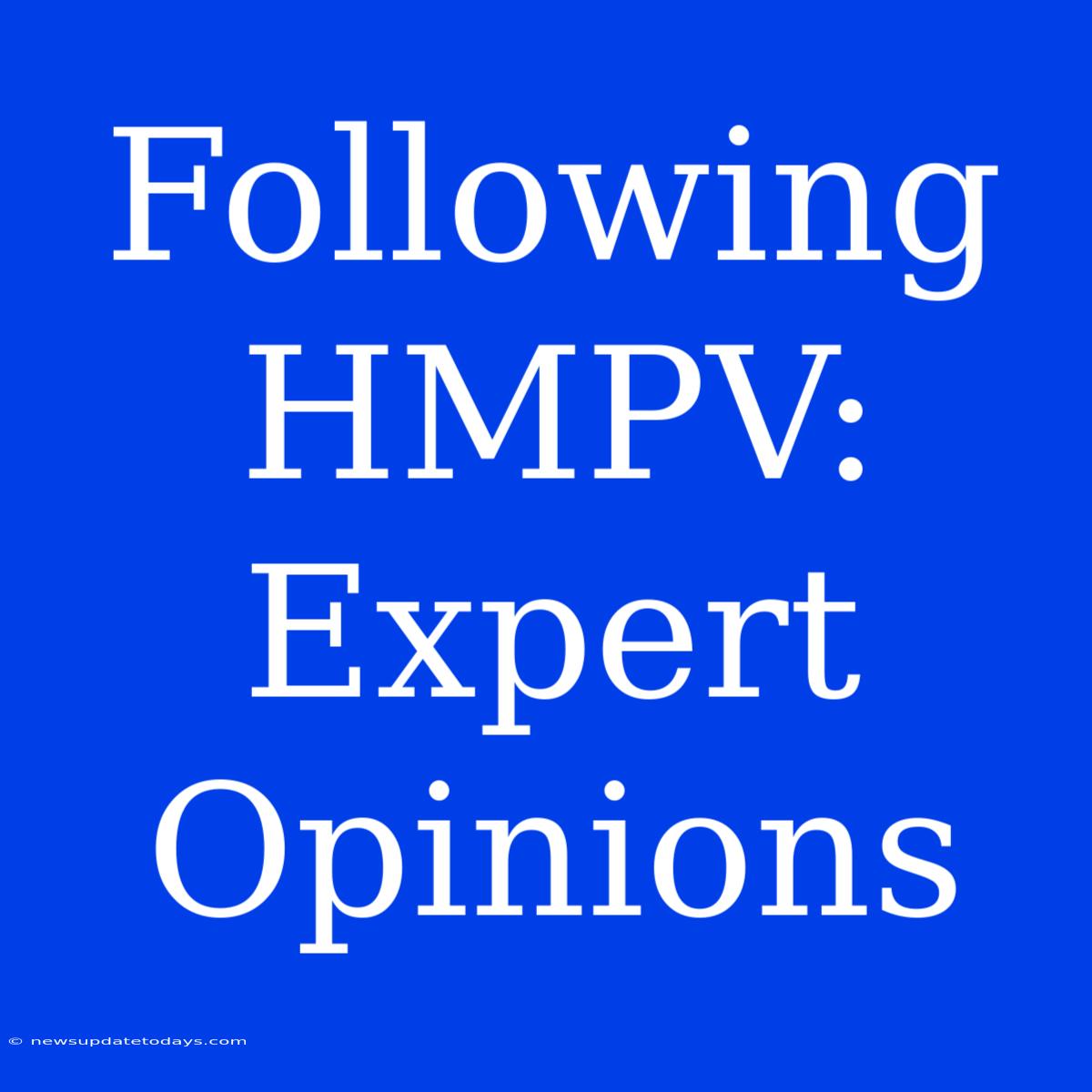Following HMPV: Expert Opinions on Prevention, Treatment, and Long-Term Effects
Human metapneumovirus (HMPV) is a common respiratory virus, particularly impacting young children and older adults. While often causing mild cold-like symptoms, HMPV can lead to more serious complications in vulnerable populations. This article gathers expert opinions on preventing, treating, and understanding the long-term effects of HMPV infection.
Understanding HMPV: A Closer Look
HMPV is a leading cause of bronchiolitis and pneumonia in infants and young children. While most infections resolve without serious consequences, some individuals experience severe illness requiring hospitalization. Expert consensus highlights the importance of early detection and appropriate management, especially in high-risk groups.
Prevention Strategies: Expert Recommendations
Vaccination is not currently available for HMPV, but experts emphasize the crucial role of preventative measures:
- Hygiene: Frequent handwashing, covering coughs and sneezes, and avoiding close contact with infected individuals are highly effective preventative measures, according to leading virologists.
- Immunization: Ensuring children receive recommended vaccinations against other respiratory viruses can reduce the overall burden of respiratory illness and potentially lessen the severity of co-infections with HMPV. This is a key area highlighted by pediatric infectious disease specialists.
- Environmental Control: Maintaining good ventilation in homes and public spaces can help reduce the spread of HMPV and other respiratory viruses. This is particularly important in daycare settings and schools, as emphasized by public health experts.
Treatment Approaches: What the Experts Say
Treatment for HMPV typically focuses on managing symptoms. Experts advise against the routine use of antibiotics as HMPV is a virus, not a bacteria.
- Supportive Care: Rest, fluids, and over-the-counter pain relievers are often sufficient for mild cases.
- Hospitalization: Severe cases, especially in infants and those with underlying health conditions, may require hospitalization for supportive care, including oxygen therapy and respiratory support. The decision to hospitalize is based on clinical judgment, as outlined by respiratory specialists.
- Antiviral Medications: While not routinely used, antiviral medications may be considered in severe cases, particularly for high-risk individuals. The use of antivirals remains an area of ongoing research and expert debate.
Long-Term Effects: Unanswered Questions
The long-term effects of HMPV infection are not fully understood. Experts are actively researching potential links between HMPV infection and the development of asthma and other respiratory conditions.
- Asthma Development: Some studies suggest a possible association between early HMPV infection and an increased risk of developing asthma later in life. This is a significant area of ongoing research, with experts continually evaluating the data.
- Whistling: While not directly related to HMPV, experts suggest that recurrent wheezing may be a warning sign requiring further investigation.
- Future Research: More research is needed to fully elucidate the long-term consequences of HMPV infection and to identify individuals at increased risk of developing complications.
Conclusion: The Importance of Awareness
HMPV remains a significant public health concern, particularly for vulnerable populations. By understanding the virus, implementing preventative measures, and seeking appropriate medical care when necessary, we can minimize the impact of HMPV infection. Continued research and expert collaboration are crucial for developing effective prevention and treatment strategies. Staying informed about HMPV and following the advice of healthcare professionals is vital for protecting yourself and your family.

